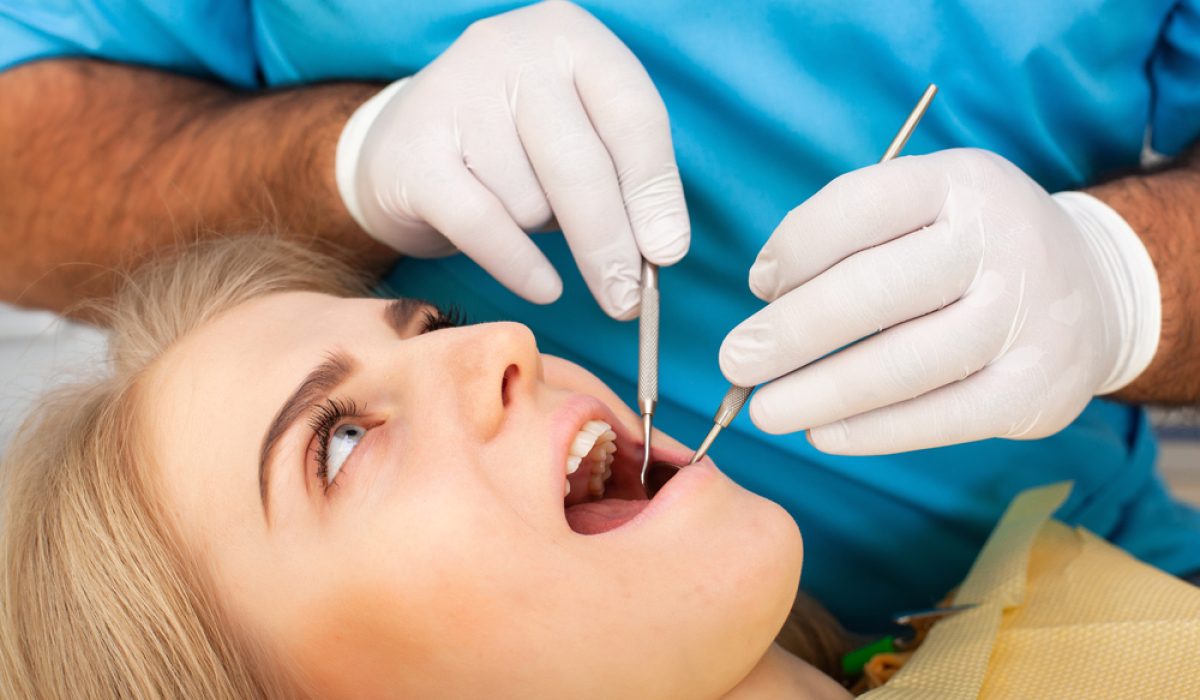Wisdom tooth pain is a prevalent dental issue that affects many individuals, typically arising in late adolescence or early adulthood. These third molars, located at the back of the mouth, usually emerge between the ages of 17 and 25. When there isn’t sufficient space in the jaw for them to grow properly, they can lead to a range of problems, including pain, infection, and damage to adjacent teeth. This pain can significantly impact daily life, making routine activities like eating and speaking uncomfortable. Early recognition of wisdom tooth pain is crucial for seeking timely dental intervention and preventing more severe complications.
The symptoms of wisdom tooth pain are varied and can include persistent discomfort in the back of the mouth, swelling and redness of the gums, tenderness, and even difficulty in fully opening the mouth. In some cases, individuals might experience bad breath or an unpleasant taste in their mouth due to infection. Understanding these symptoms and their implications is vital for anyone who might be experiencing this common dental issue.
Wisdom tooth pain can stem from several causes, including tooth impaction, where the tooth grows at an angle or becomes stuck, leading to inflammation and infection. Other causes include the formation of cysts or tumours and an increased risk of cavities and gum disease due to the difficulty of cleaning these hard-to-reach teeth. Proper diagnosis and assessment by a dental professional are essential for determining the appropriate treatment and ensuring optimal oral health. Recognising and addressing wisdom tooth pain promptly can help maintain a healthy, pain-free smile.
Table of Contents
ToggleUnderstanding Symptoms
Recognising the symptoms of wisdom tooth pain early can help in seeking timely dental care and avoiding further complications. Common symptoms include:
- Pain and Discomfort: One of the earliest signs is pain at the back of the mouth, which can radiate to the jaw, ears, and head.
- Swelling and Redness: The gum tissue around the emerging tooth often becomes swollen and red.
- Tenderness: The area may be tender to touch, making eating and speaking uncomfortable.
- Bad Breath: Persistent bad breath or an unpleasant taste in the mouth can indicate infection or decay associated with wisdom teeth.
- Difficulty Opening Mouth: In severe cases, you might experience difficulty in opening your mouth fully.
Recognising these symptoms and seeking dental care promptly can prevent more severe issues from developing.
Causes of Wisdom Tooth Pain
Several factors can contribute to the pain associated with wisdom teeth:
- Tooth Impaction: When there isn’t enough space for the wisdom teeth to emerge, they may become impacted, growing at an angle or getting stuck in the jawbone.
- Infection: Partially erupted wisdom teeth can create pockets where bacteria accumulate, leading to infection and inflammation.
- Cysts and Tumours: In rare cases, cysts or tumours can form around impacted wisdom teeth, causing pain and potential damage to surrounding teeth and bone.
- Decay and Gum Disease: Due to their location, wisdom teeth can be difficult to clean properly, increasing the risk of cavities and gum disease.
Diagnosis and Assessment
Diagnosing wisdom tooth pain involves a thorough examination by a dentist in Currambine, including:
- Clinical Examination: The dentist will inspect the mouth for signs of swelling, redness, and tenderness.
- X-rays: Dental X-rays are crucial for visualising the position of the wisdom teeth and determining whether they are impacted or causing damage to adjacent teeth.
- Patient History: Discussing symptoms and medical history helps in identifying the cause of the pain and planning the appropriate treatment.
Treatment Options
Several treatment options are available for managing wisdom tooth pain, depending on the severity of the symptoms and the underlying cause:
- Pain Relief: Over-the-counter pain medications and anti-inflammatory drugs can help manage pain and reduce inflammation.
- Antibiotics: If an infection is present, antibiotics may be prescribed to eliminate the bacteria and prevent the infection from spreading.
- Tooth Extraction: In many cases, the best solution is to extract the problematic wisdom teeth. This can be done surgically, especially if the teeth are impacted.
- Surgical Removal: For impacted teeth, oral surgery might be required to remove the teeth and any associated cysts or tumours.
Preparing for Treatment
Proper preparation is essential for ensuring a smooth and successful treatment process:
- Consultation: Schedule a consultation with your dentist or oral surgeon to discuss the procedure and any specific instructions.
- Pre-operative Instructions: Follow any pre-operative instructions provided by your dentist, such as fasting before surgery or arranging transportation.
- Medication Management: Inform your dentist of any medications you are currently taking, as some may need to be adjusted before the procedure.
Recovery Process
The recovery process after wisdom tooth extraction varies depending on the complexity of the procedure and individual healing rates:
- Post-operative Care: Follow your dentist’s post-operative care instructions, which may include taking prescribed medications, applying ice packs to reduce swelling, and avoiding certain foods.
- Rest: Ensure adequate rest to allow your body to heal properly.
- Oral Hygiene: Maintain good oral hygiene by gently rinsing with salt water and avoiding vigorous brushing near the extraction site.
- Follow-up Visits: Attend any scheduled follow-up appointments to monitor healing and address any concerns.
Complications and Risks
While wisdom tooth extraction is a common procedure, it’s essential to be aware of potential complications and risks:
- Dry Socket: A painful condition where the blood clot at the extraction site dislodges, exposing the bone and nerves.
- Infection: There’s a risk of infection after surgery, particularly if post-operative care instructions are not followed.
- Nerve Damage: In rare cases, nerve damage can occur, leading to temporary or permanent numbness in the tongue, lips, or chin.
- Sinus Issues: For upper wisdom teeth, there’s a risk of complications involving the sinuses.
Understanding these risks and following your dentist’s advice can help mitigate potential complications.
Conclusion: Empowering Dental Health
Taking proactive steps to manage wisdom tooth pain is crucial for maintaining overall oral health and well-being. Early identification of symptoms such as discomfort, swelling, and tenderness allows for timely intervention, which can prevent complications like infections, cysts, and damage to adjacent teeth. By seeking professional dental care at the onset of these symptoms, individuals can avoid the more severe consequences of untreated wisdom tooth problems.
Understanding the underlying causes of wisdom tooth pain, such as tooth impaction, infection, and decay, empowers individuals to make informed decisions about their oral health. Knowledge about these issues promotes proactive dental care, encouraging regular check-ups and hygiene practices that can prevent the onset of wisdom tooth pain. Regular dental visits enable early diagnosis and monitoring of emerging wisdom teeth, allowing for strategic planning and timely interventions that minimise discomfort and complications.
Treatment options for wisdom tooth pain range from pain relief and antibiotics to surgical extraction. The appropriate treatment depends on the severity and cause of the pain. Consulting with a dental professional ensures that the chosen treatment aligns with the individual’s specific needs, promoting a smoother recovery and better long-term outcomes. Proper preparation for treatment, including understanding pre-operative instructions and post-operative care, further enhances the success of the procedure and reduces the risk of complications.
The recovery process following wisdom tooth extraction involves diligent post-operative care, such as maintaining oral hygiene, managing pain with prescribed medications, and attending follow-up appointments. Awareness of potential complications, including dry socket, infection, and nerve damage, allows individuals to take preventive measures and seek prompt care if issues arise.
Ultimately, empowering dental health means being proactive about oral care, recognising early signs of problems, and seeking professional advice promptly. By prioritising dental health and addressing wisdom tooth pain effectively, individuals can ensure a healthy, pain-free smile. This approach not only enhances oral health but also contributes to overall physical well-being, self-confidence, and quality of life. Regular dental check-ups, good hygiene practices, and informed decisions about treatment options are fundamental to achieving and maintaining excellent dental health.
FAQs
Early signs of wisdom tooth pain include discomfort and pain at the back of the mouth, swelling and redness of the gums, tenderness, bad breath, and difficulty opening the mouth.
Wisdom tooth pain is diagnosed through a combination of clinical examination, dental X-rays, and a review of the patient’s symptoms and medical history.
Risks associated with wisdom tooth removal include dry socket, infection, nerve damage, and sinus issues. These risks can be minimised by following post-operative care instructions and attending follow-up appointments with your dentist.
Taking proactive steps to address wisdom tooth pain ensures that you maintain not only good oral health but also overall health and well-being. If you experience symptoms of wisdom tooth pain, consult with your dentist promptly to explore the best treatment options for your needs.

Dr Saket Rai
Dr. Saket Rai is a passionate dentist with over 15 years of experience in general dentistry. He specializes in dental implants, wisdom teeth removal, laser dentistry, cosmetic dentistry, and Digital Smile Design. With a Bachelor of Dental Surgery degree and a Masters in Forensic Odontology, he stays updated with the latest dental technology and techniques. Dr. Rai has extensive training in dental implants and believes in continuous professional development to provide the highest standard of care. Outside of dentistry, he enjoys spending time with his two boys and has interests in reading, documentaries, and cricket.








